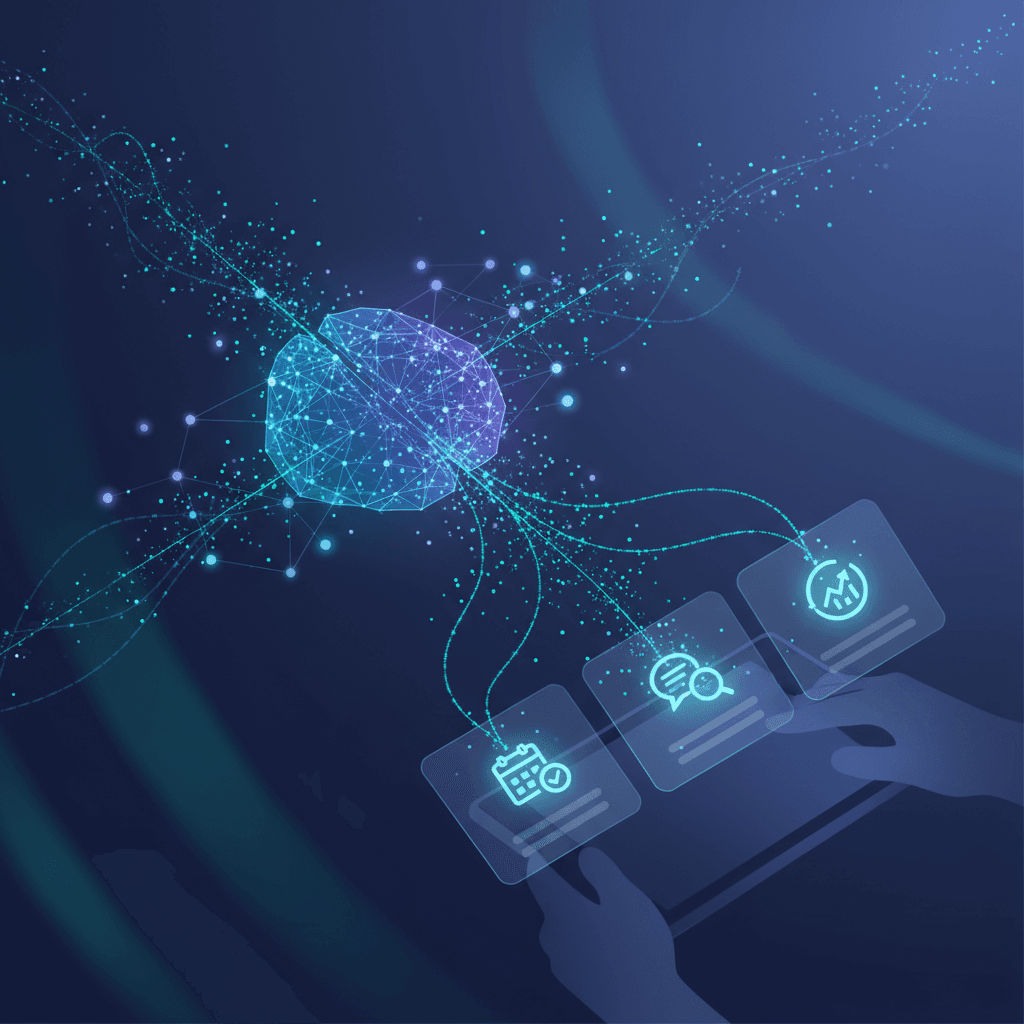OpenAI's ChatGPT Goes Proactive: 'Pulse' Feature Initiates Personalized Daily Updates
OpenAI’s Pulse redefines ChatGPT as a proactive partner, anticipating needs and delivering personalized daily briefings, raising privacy and dependency questions.
September 25, 2025

OpenAI is fundamentally altering the nature of its interaction with users by introducing Pulse, a new feature that allows its ChatGPT model to initiate conversations proactively. This development marks a significant departure from the established paradigm of AI assistants that wait for user commands, instead pushing ChatGPT into the role of an anticipatory partner that delivers personalized daily updates.[1][2] The feature, which is currently being tested with Pro users on mobile devices, synthesizes information from a user's chat history, feedback, and connected applications to conduct research and present curated information each morning.[1][3] This strategic shift from a reactive tool to a proactive assistant signals a major step in the evolution of artificial intelligence, aiming to embed AI more deeply and seamlessly into the daily routines of its users.[4][5]
Pulse functions by performing asynchronous research on the user's behalf, essentially working overnight to prepare a daily briefing.[6][3] Each morning, the feature delivers a set of updates in the form of topical visual cards that can be quickly scanned or expanded for more detailed information.[1][7] The content is generated by analyzing the user's previous conversations, saved memory, and direct feedback to learn what topics are most relevant.[8] For example, it might provide follow-ups on frequently discussed subjects, offer ideas for dinner recipes, or suggest next steps for a long-term goal like training for a triathlon.[9][10] To enhance this personalization, users can optionally connect external applications like Google Calendar and Gmail, which allows Pulse to provide more context-aware suggestions, such as drafting a meeting agenda, providing information about an upcoming travel destination, or reminding a user about a birthday.[6][7][8] OpenAI emphasizes that user control is a central component of the feature; individuals can curate the topics they want Pulse to research and provide feedback with a simple thumbs-up or thumbs-down to refine future updates.[6][10] These daily updates are designed to be ephemeral, disappearing after a day unless the user chooses to save one as a chat or asks a follow-up question.[1]
The introduction of Pulse represents a deliberate and strategic move by OpenAI to redefine the role of AI assistants in the broader technology landscape. Until now, the primary interaction model for mainstream AI like ChatGPT has been reactive: the user asks a question, and the AI provides an answer.[6] This approach, while powerful, places the burden entirely on the user to know what to ask.[1] Pulse flips this dynamic by attempting to anticipate needs, a capability that moves it closer to the vision of a true digital assistant.[11][12] This shift is crucial for OpenAI as it competes with other tech giants who are also developing more integrated and proactive AI systems. By making ChatGPT a service that actively brings information to the user, OpenAI aims to increase engagement and make the tool an indispensable part of a user's daily information diet, similar to checking a news feed or social media.[13] The long-term vision articulated by the company is for AI systems that can research, plan, and take helpful actions on a user's behalf, with Pulse serving as the foundational step toward this more autonomous future.[1]
While the potential benefits of a proactive AI assistant are significant, the technology also introduces a new set of challenges and considerations for users. On one hand, Pulse could streamline daily planning and information gathering, offering personalized research on autopilot for everything from professional projects to personal hobbies.[6] Early testers, such as college students, reported that the feature became more useful after they explicitly told it what they wanted to see, with one user receiving travel tips they would not have otherwise sought out.[8] However, this level of personalization requires granting the AI access to a significant amount of personal data, including chat histories and calendar events, raising inevitable privacy concerns.[14][15] Furthermore, the reliability and accuracy of these proactive suggestions remain a key question. OpenAI acknowledges that Pulse is a preview and won't always get things right, potentially offering tips for a project that is already complete or providing irrelevant information.[1][3] There is also the risk of information overload and the psychological impact of an AI that is constantly trying to anticipate one's needs, which could foster dependency and blur the lines between helpful assistance and digital intrusion.[16][15]
In conclusion, OpenAI's Pulse feature is more than just a new function; it is a statement of intent for the future of human-AI interaction. By empowering ChatGPT to start the conversation, OpenAI is pushing the boundaries of what users expect from an artificial intelligence tool, moving it from a powerful but passive repository of information to an active participant in their daily lives. The initial rollout to Pro users will serve as a critical testbed for gauging user acceptance and refining the system's ability to provide genuinely useful, timely, and relevant information without becoming intrusive.[17][13] The success of Pulse could accelerate an industry-wide race toward developing more predictive and autonomous AI agents, fundamentally changing how we work, plan, and engage with the digital world while simultaneously bringing complex questions of privacy, accuracy, and user autonomy to the forefront of the conversation.[18]
Sources
[1]
[3]
[5]
[9]
[11]
[13]
[14]
[15]
[16]